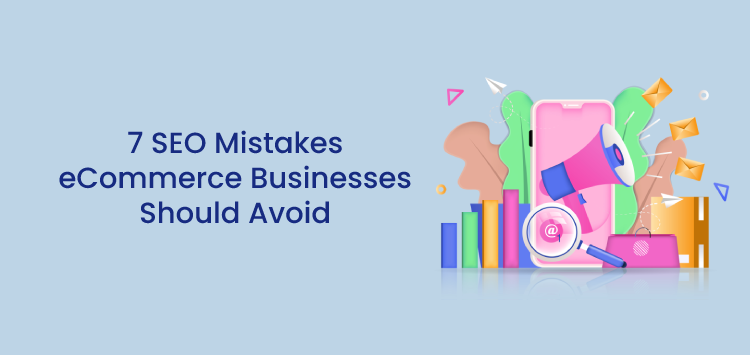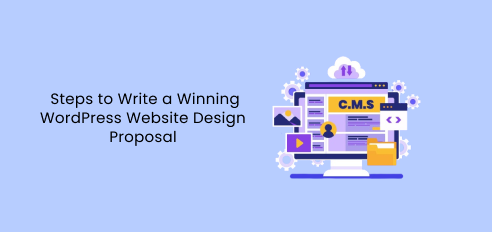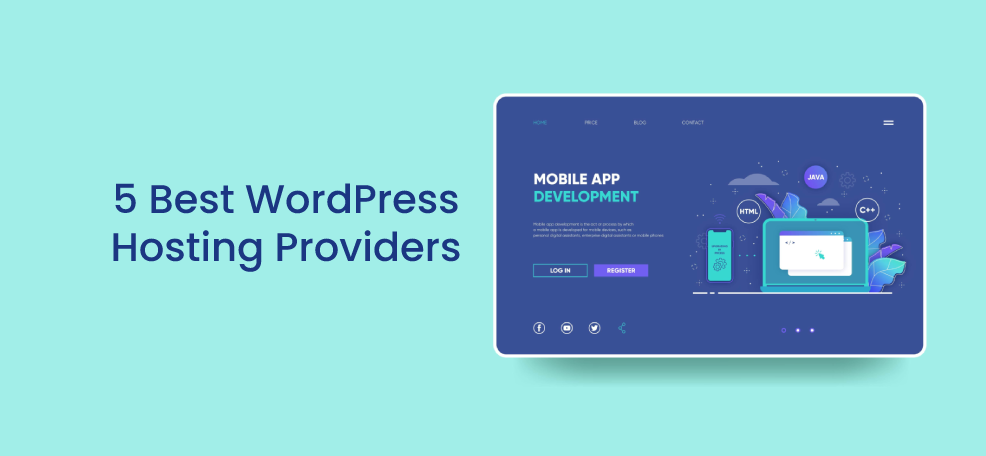Any eCommerce website must prioritize results to get clients and appear at the top of standard search engines.
The importance of SEO lies in allowing businesses to significantly increase their brand awareness, draw in customers, and boost conversion rates by using search engine optimization.
In other words, the objective is to attract clients from organic search results by optimizing material to rank at the top of pertinent Google searches without any ad spend.
Approximately 80% of marketers concur that SEO strategies are successful in assisting them in achieving their objectives and optimizing the conversion rate. Still, you won’t get the desired outcomes if you don’t employ the proper methods.
You should avoid the top blunders in the following paragraphs when developing a digital marketing plan for your eCommerce site.

Why is SEO a must for eCommerce Businesses?
SEO is the practice of boosting a website’s exposure and traffic to users of multiple search engines, such as Google or Bing.
It is essential. To keep ahead of the competition, all firms with at least a minimal online presence choose to apply SEO methods on their websites.
You can boost your conversion rate, increase traffic, and gain leads with great SEO. If you own an eCommerce business & you are overlooking your SEO tactics.
In that case, you lag behind your competitors, so what are you waiting for to jump on the bandwagon?
Accessibility
Online research is a vital part of the purchasing process for clients everywhere.
Search engines are used by more than 90% of customers to research items and complete online transactions. Various search engines account for a significant portion of:
- Website Traffic
- Increase conversion rate
- Gain leads

Of course, Google generates the most visitors to various websites based on user searches.
Ecommerce SEO will make your site more visible to search engines and boost its exposure to your target demographic & consequently; the profit percentage will dramatically grow with greater visibility.
Countless eCommerce professional SEO services are available on the market. They assist appropriately with your company’s requirements & needs at a relatively reasonable cost.
SEO is economical
A sound SEO strategy is essential to the expansion of your enterprise. A cost-effective technique to enhance traffic to your site is simply delegating the plan management to an expert SEO agency. A suitable approach allows you to generate significant free, high-quality organic traffic to your domain.
Do you hear about such techniques which can boost your conversion rate for free?
Make SEO a key component of your company’s marketing plan, and you’ll be able to do more on a budget. For eCommerce, get in touch with a digital marketing company that will take care of the rest.
Return of investment
Your organization may achieve focused, quantifiable results through an efficient SEO approach. The outcomes are usually long-lasting if you keep using the same process for your website.
Ensuring that most visitors convert into your cherished customers is adequate. SEO is a fantastic online marketing strategy.
With very little expenditure, it may provide your company with a tremendous ROI and conversion rate.
Seven Crucial SEO mistakes eCommerce businesses must avoid
No online store can be flawless, especially when it first goes live. To build the ideal eCommerce website, constant observation, work and support through channels like live chat are needed.
Similarly, SEO for an online business aiming to deliver consulting services, sell digital products, or provide goods delivery systems, among other activities, is not a simple process. Webmasters frequently make careless errors that hurt the functionality of their websites.
Here are some substantial SEO mistakes that eCommerce businesses need to avoid:
1. Page titles that are duplicated or not optimized
Webmasters’ most common SEO error is failing to optimize the product page title. The primary guideline of SEO is to have a different title tag for each website page.
However, optimizing an eCommerce website frequently fails webmasters. If you sell several items from the same brand or the same thing under various brand names, it might be challenging to come up with a distinctive title for each page on your site.
When you are supplying hundreds of thousands of items, it is not the best plan for webmasters to often search for keyword terms.
If you make this mistake, your conversion rate will never increase.

2. Incorrect product description
Another crucial component of eCommerce SEO is product description. Many webmasters make the mistake of either not including the report or including it precisely as it is on the manufacturer’s website.
You are passing up an opportunity to provide the distinctive material that characterizes your product when you don’t include a description. Always keep in mind that search engines can read only text.
Therefore, providing original language that explains your items and increases the likelihood that they will rank better in the SERP is a must.
Any webmaster would never consider copying the manufacturer’s description. The website may be penalized for content duplication if the product description is copied. When crawling, search engines constantly hunt for unique information.
Your website’s crawling rate may be slowed if they discover duplicate material on one of your pages. Manufacturers’ descriptions are not written for sale on top of these other factors.
To increase your chances of ranking at the top of the SERP, you must create an original product description that draws visitors in and informs them about the goods.
In this way, your conversion rate will remarkably rise.
3. Based on the search terms, the product pages are not optimized
Webmasters often optimize the eCommerce website’s product category and subcategory pages. However, they forget to optimize the item pages. Users start the buying process on these pages.
Item pages are the most paramount if you want to boost your sales and conversion rate, which is the critical point of SEO.
Therefore, correctly optimizing product pages is crucial. Ensure you thoroughly investigate people’s main search terms to look for particular goods and optimize for those long-tail keywords.
Several techniques may be used to improve product pages. Make sure your description is distinct and focused on the user.
In the Title tag and the H1 heading tag, you can utilize the goods name, brand, and model number. Make sure you correctly optimize and have high-quality photos.
Avoid overusing repetitions of keywords, and make sure everyone can read your material.
4. Product reviews
Another critical element that has a significant impact on a user’s purchasing choice is product reviews.
A study by Bizaarvoice.com indicates that checking forums or online stores brings in almost 60% more conversions.
Therefore, by not including user evaluations on the product page, you send a significant portion of your potential buyers to another site.
Not only does having user-generated original content on the product page assist you in attracting users’ attention, but it also benefits you by having reviews.
Although creating original content for every product you sell might be challenging, writing product reviews can help alleviate this issue for nothing.
Additionally, it keeps the product page updated, encouraging search engine crawlers to visit a website more frequently. A higher indexing rate is positive for an SEO effort as a whole.

5. Poorly made product images
Users frequently glance at the product picture before making a purchase. One image may convey a thousand words.
Therefore, the product page has to feature high-quality product photos. A single image is also insufficient. You must present your goods from various perspectives and with multiple color nuances.
On both desktop and mobile devices, you must ensure that photos load quickly and have the option to zoom in.
These are a few fundamental factors you should consider while optimizing photos for an eCommerce site. The need for each picture on the website to have appropriate and distinctive alt text is critical.
Make sure to have distinct and evocative alt text for each image on the website.
6. Neglecting quality Backlinks
A backlink is a hyperlink pointing to your content on another website. Backlinks inform Google that your website is a renowned and trustworthy authority.
About 55% of SEO professionals rank backlinks as the most crucial element in a website’s SEO friendliness. This is because how highly you type and the number of domains linking to your pages strongly correlate.

The top result on Google typically has 320% more backlinks than positions two through ten.
But quality also matters, not just quantity. These connections must originate from reliable sources. Your rank will be impacted more by links from sites with higher PageRank and domain authority ratings than from sites with lower scores.
Consider creating a plan to reach out to industry-relevant websites to collaborate with, so you can build high-quality backlinks.
7. Inconsistent blog posting
Regular posting demonstrates to Google that you are a current and pertinent source of information for your sector.
If you run a small e-commerce business, at the very least, you should post SEO material regularly (three to five times each week, depending on your store’s size).
According to HubSpot, businesses that publish blog posts several times a day average 89% of new leads. However, you can get the most out of the content production benefits by blogging twice a week.
That’s why it’s time to consider appointing a team to manage the content of your website. Along with performance SEO audits to ensure that your website is optimized, this will guarantee that new material is continuously uploaded.
Conclusion
Implementing a well-thought-out and successful SEO strategy for your website is no easy task.
When thinking about increasing your internet presence or conversion rate, SEO strategy is something you cannot neglect or dismiss.
Even though there are numerous ways to advertise your company, nothing can rival the effectiveness of SEO.
All firms with an online presence choose to include SEO approaches in their marketing plans, whether small or large.
Author’s Bio: Alladdine Djaidani is an internet marketer and founder of Hustler Ethos. He likes to help companies rank on google and drive growth without breaking the bank.










